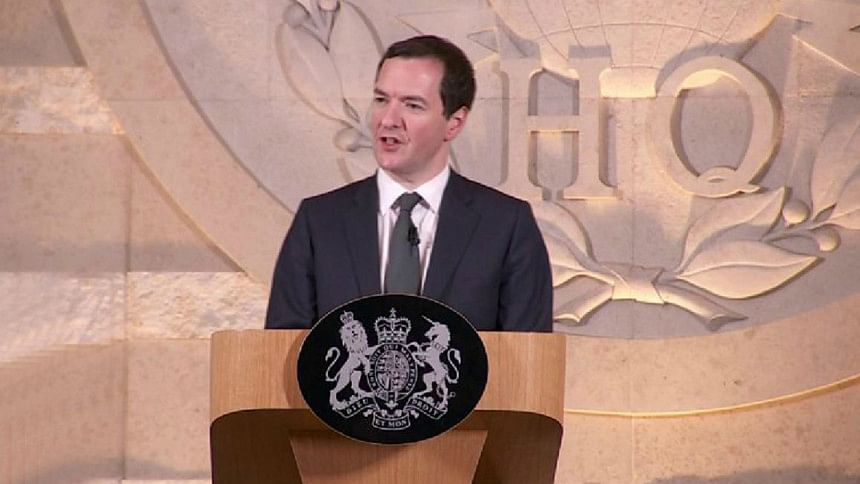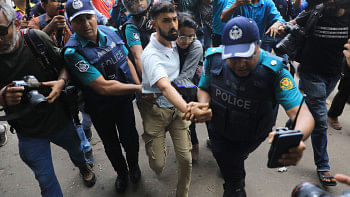‘IS is plotting deadly cyber-attacks’

Islamic State militants are trying to develop the ability to launch deadly cyber-attacks on UK targets such as air traffic control or hospitals, Chancellor George Osborne has said.
He is set to double UK funding to fight cybercrime to £1.9bn over five years.
Meanwhile, the Ministry of Defence says RAF Tornados attacked a group of more than 30 IS fighters in Iraq on Monday.
And on Sunday, an RAF Reaper drone provided surveillance for a French air strike on an IS target in Syria.
MPs rejected possible air strikes in Syria against President Bashar al-Assad's government in 2013, but in a later vote approved military action against IS in Iraq.
Downing Street has confirmed that Prime Minister David Cameron will attend a football match between England and France at Wembley Stadium later, where armed police are being deployed.
He is giving a statement in the Commons at 12:30 GMT.
Osborne's speech came after IS said it was behind Friday's attacks in which 129 people were killed in bars, restaurants, a concert hall and at a stadium in Paris. The victims included Briton Nick Alexander from Essex.
Osborne - who visited the GCHQ listening station in Cheltenham - said IS has already proved its ability to exploit the internet "for hideous propaganda purposes", including for radicalisation and operational planning.
But the chancellor warned that IS was also seeking to hack key UK infrastructure in a bid to kill people.
Mr Osborne also said GCHQ is monitoring threats to 450 companies in areas such as defence, energy and water supply.
"From our banks to our cars, our military to our schools, whatever is online is also a target," Osborne said.
"The stakes could hardly be higher. If our electricity supply, or our air traffic control, or our hospitals were successfully attacked online, the impact could be measured not just in terms of economic damage but of lives lost."
He added: "They do not yet have that capability. But we know they want it, and are doing their best to build it."
TOP PRIORITY
Osborne said the public needed to follow "basic rules of keeping themselves safe" online.
This could be achieved, he added, by installing security software, downloading software updates and using strong passwords.
"The starting point must be that every British company is a target, that every British network will be attacked, and that cyber crime is not something that happens to other people."
Osborne also announced the creation of a new National Cyber Centre to bring together the country's leading experts.
Other planks of the UK's strategy will include an Institute For Coding, increased investment in the National Cyber Crime Unit, and apprenticeships for cyber-security specialists.
BBC security correspondent Frank Gardner said much of what the chancellor planned to announce was not new, but it was clear that the government wanted the public to know it had decided to make cyber security a top priority.
HOW CAN CYBER-WEAPONS BE SO DESTRUCTIVE?
Speaking at the Lord Mayor of London's Banquet on Monday night, Cameron said the UK must now show the same resolve it displayed against Adolf Hitler during the Blitz in order to defeat the threat of terrorism.
The prime minister said rising defence budgets - guaranteed by the government's commitment to spend 2% of GDP on the military - would mean "more money" for priorities such as unmanned drones, fighter aircraft and cyber-defences, he added.
"You do not protect people by sitting around and wishing for another world. You have to act in this one. And that means being prepared to use military force where necessary," Cameron said.
Meanwhile, the Met said supporters would see an enhanced police presence at Tuesday's football match between England and France at Wembley Stadium.
England coach Roy Hodgson said the game would not be a "normal friendly" as a result of the attacks in Paris.
The Duke of Cambridge and London Mayor Boris Johnson are expected to be among the crowd.

 For all latest news, follow The Daily Star's Google News channel.
For all latest news, follow The Daily Star's Google News channel. 



Comments